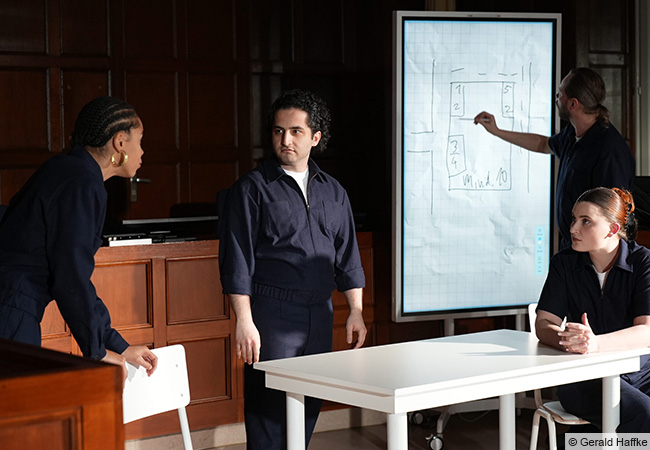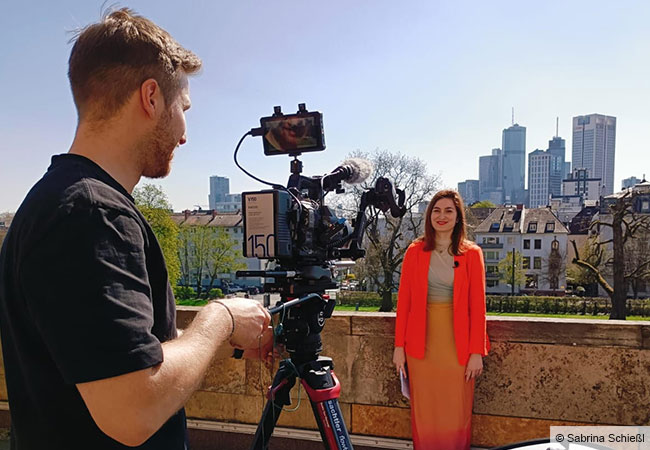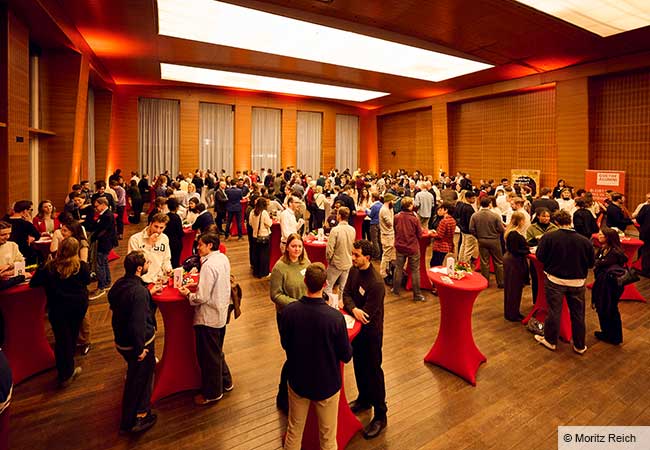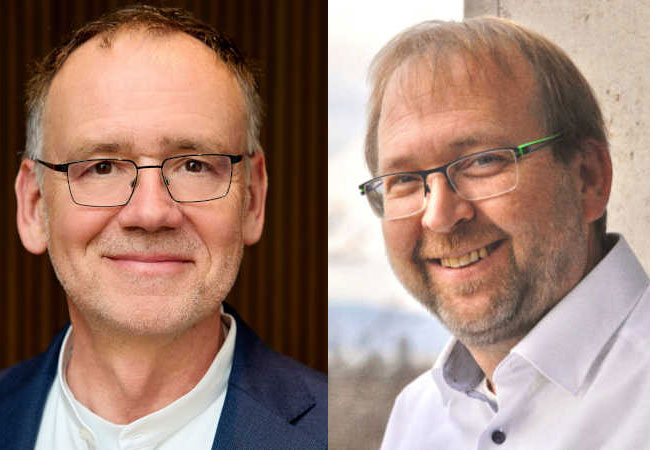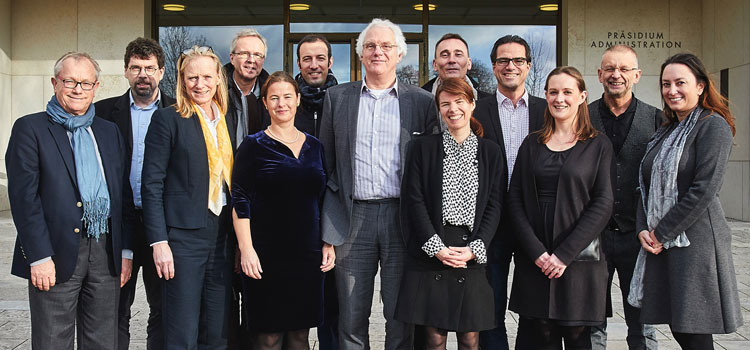
Goethe University has joined ranks with universities in Milan, Lyon and Birmingham to form an alliance of European universities for more intensive cooperation in the future. In February they will together apply for the title “European University” and funding by the EU. On Monday and Tuesday, the partners met in Frankfurt to discuss goals and opportunities of the collaboration.
“This application for ‘European University’ is a great opportunity for Goethe University,” said Professor Rolf van Dick, Vice President of Goethe University and responsible for international affairs, speaking informally during the meeting. As European University, networking in Europe would be strengthened and scientific and non-scientific projects could be tackled.
Three to five universities can apply together for the title “European University” with the European Commission. Important requirements are a common, long-term education strategy; a common (virtual) “European Campus”; and research and a student body characterized by diversity that can place their focus on the challenges of the future. Goethe University already has a partnership with the University of Birmingham, the Université Lumière Lyon II and Sciences Po Lyon, and the Università Cattolica del Sacro Cruce in Milan, and as partner cities, all four cities are furthermore on friendly and familiar terms. As “European University”, their cooperation could be intensified and made more concrete. If successful, the consortium will receive funding amounting to € 5 million for an initial three years.
In a well-received speech in September 2017, French President Emmanuel Macron proposed the creation of 20 European universities by 2024, referring to networking and alignment between existing European universities as opposed to the creation of new institutions. In difficult times for the European Union, university science and scholarship should be strengthened as an important engine for European integration. This would enable the younger generation, in particular, to again develop a stronger connection to the project of Europe. But scientific knowledge and learning are in general of great significance for developing a European identity – as manifested in the past by examples such as the Erasmus exchange programme, and collaborative research projects funded by the EU.
Macron affirmed his ideas impressively at Goethe University in October 2017. “It really inspired all of us,” says van Dick. In April, a task force was created, headed by van Dick. “It’s exciting, actually,” said James Walker from the Université Lumière Lyon II, praising Goethe University’s initiative. “We quickly found ourselves on the same page regarding our objectives and values. It almost doesn’t matter if our application isn’t successful. We’ll cooperate anyway,” says Walker. “It’s vital for us, as universities, to work together. If we cannot cooperate, how can we expect it of our politicians?” said Michael Whitby from the University of Birmingham, alluding to the Brexit crisis. And Edilio Mazzolini from Università Cattolica in Milan is “proud to be a part of this network“, because the identity of his university is “deeply European“.
Mobility, the meeting summed up, should be a central issue of the European University. Mobility of students, of scientific and non-scientific personnel, and also the mobility of ideas. The universities face similar challenges, for example in teaching, and together they will be able find better solutions. Birmingham has been a strategic partner for years; cooperation between the faculties of law and economics has existed for several years with Université Lumière Lyon II; with Sciences Po Lyon there is a lively partnership between the political science faculties; and Goethe University has a common master’s degree in film studies with Milan.


